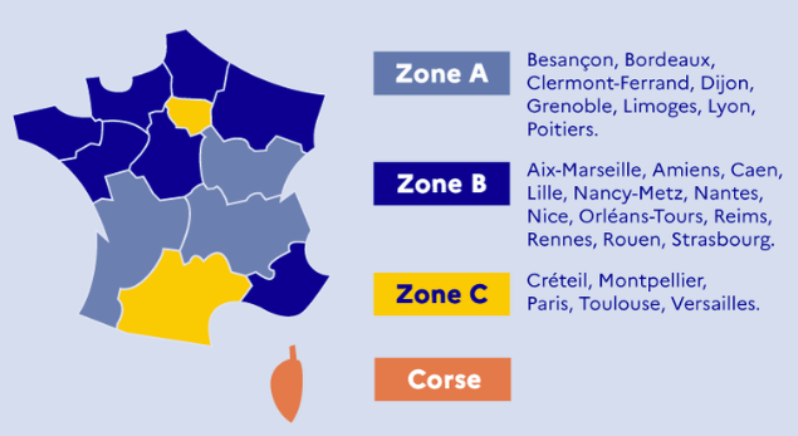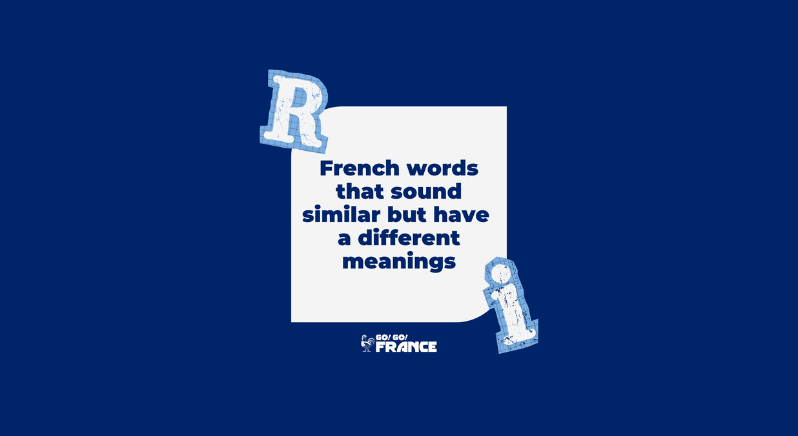Studying French in France is an amazing opportunity for international students, and French language schools are the best place to start your journey toward mastering the language. But how exactly do these schools work? What can you expect in terms of classes, schedules, and exams?
In this article, we’re answering the 10 most frequently asked questions about French language schools, giving you everything you need to know before diving into your French language learning adventure.
1. How do French language school terms work?
Most schools offer students the flexibility to start their studies on any Monday throughout the year. However, for complete beginners, specific start dates are set to ensure a structured learning environment from the basics. Depending on the school, these start dates for beginners can range from the first Monday of each month to just four terms per year.
Read more here: https://gogofrance.com/en/blog/how-french-language-school-terms-work/
2. How do French lessons in France work?
Language students typically attend classes five days a week, from Monday to Friday, with sessions either in the morning or afternoon, usually lasting 3 to 4 hours per day. The lessons focus on developing confidence in the four language skills: writing, speaking, listening, and reading. Depending on the school and course intensity, the number of lessons and total hours per week may vary. The teaching approach aligns with the Common European Framework of Reference for Languages (CEFR), emphasizing task-based learning for practical language use.
Read more here: https://gogofrance.com/en/blog/how-french-lessons-in-france-work/
3. What do you learn in French classes?
Classes are designed to help students develop proficiency in all aspects of the language. The curriculum generally covers vocabulary building, grammar rules and sentence structure, pronunciation techniques, listening and comprehension skills, reading fluency, and writing practice. Cultural learning is also an important part of the program, offering you an understanding of French traditions, etiquette, and social norms, making your learning experience more complete.

4. What are the differences between standard and intensive courses?
Standard courses typically consist of around 15 hours of French per week, while intensive courses offer about 20 hours, and super-intensive courses exceed 20 hours per week. Students can choose the duration and pace of their studies based on their individual preferences and goals.
Read more here: https://gogofrance.com/en/blog/which-french-course-should-you-choose/
5. Is there an age limit to apply to a language school in France?
There is generally no strict age limit to apply to a language school in France. Language schools cater to students of various age groups, including adults, teenagers, and children. Whether you are a young learner, a university student, a working professional, or a retiree, you can typically find language programs that suit your age and proficiency level.
6. What are the DELF and DALF exams?
The most recognized language proficiency tests for French are the DELF (Diplôme d’Études en Langue Française) and DALF (Diplôme Approfondi de Langue Française). They follow the Common European Framework of Reference for Languages (CEFR) levels, ranging from A1 (beginner) to C2 (proficient). These exams are recognized globally and serve as an excellent certification of your French language skills, whether for academic or professional purposes.
Read more here: https://gogofrance.com/en/blog/french-exams-dilf-delf-dalf-guide/
7. How long does it take to become fluent in French?
Becoming proficient in French depends on multiple factors, including the course intensity, personal study habits, or your native language. To reach a B2 level in French, considered upper-intermediate or conversationally fluent, you would need a total of approximately 1,110 to 1,350 hours of study. To reach the C1 level, which represents advanced fluency, the required time is around 1,910 to 2,300 hours in total from zero (complete beginner). These estimates are approximate and can vary depending on individual learning pace and level of immersion.
Read more here: https://gogofrance.com/en/blog/how-long-to-learn-french/

8. Is there any specific assistance for students with learning disabilities or special needs?
Many schools are now equipped with resources and services specifically designed for students with disabilities. We strive to create an inclusive and accommodating learning environment for all students. If you have a learning disability or special needs, we encourage you to contact us. By communicating your specific needs and current condition, we can work closely with our partners to determine the feasibility of providing the necessary support.
Read more here: https://gogofrance.com/en/blog/learning-french-deaf-visually-impaired/
9. Why are classes taught in French?
French language schools emphasize teaching in French as the primary language of instruction. This immersive approach accelerates language acquisition by forcing students to think, respond, and engage in French. It fosters rapid comprehension and greater confidence in speaking.
10. Is studying in France the best way to Learn French?
Yes! Immersion is the most effective way to learn a language, and studying in France gives you the unique opportunity to practice French every day. You’ll be surrounded by the language, culture, and traditions, providing a real-world context to what you learn in class.
Read more here: https://gogofrance.com/en/blog/where-to-learn-french-in-france/

Interested in learning French in France?
At Go! Go! France, we’re dedicated to making your dream of studying in France a reality. Through our tailored services, comprehensive support, and student-first approach, we simplify the visa application process and pave the way for your educational adventure in France.
When you feel ready to start, contact Go! Go! France team here to get your life and study in France journey started.











